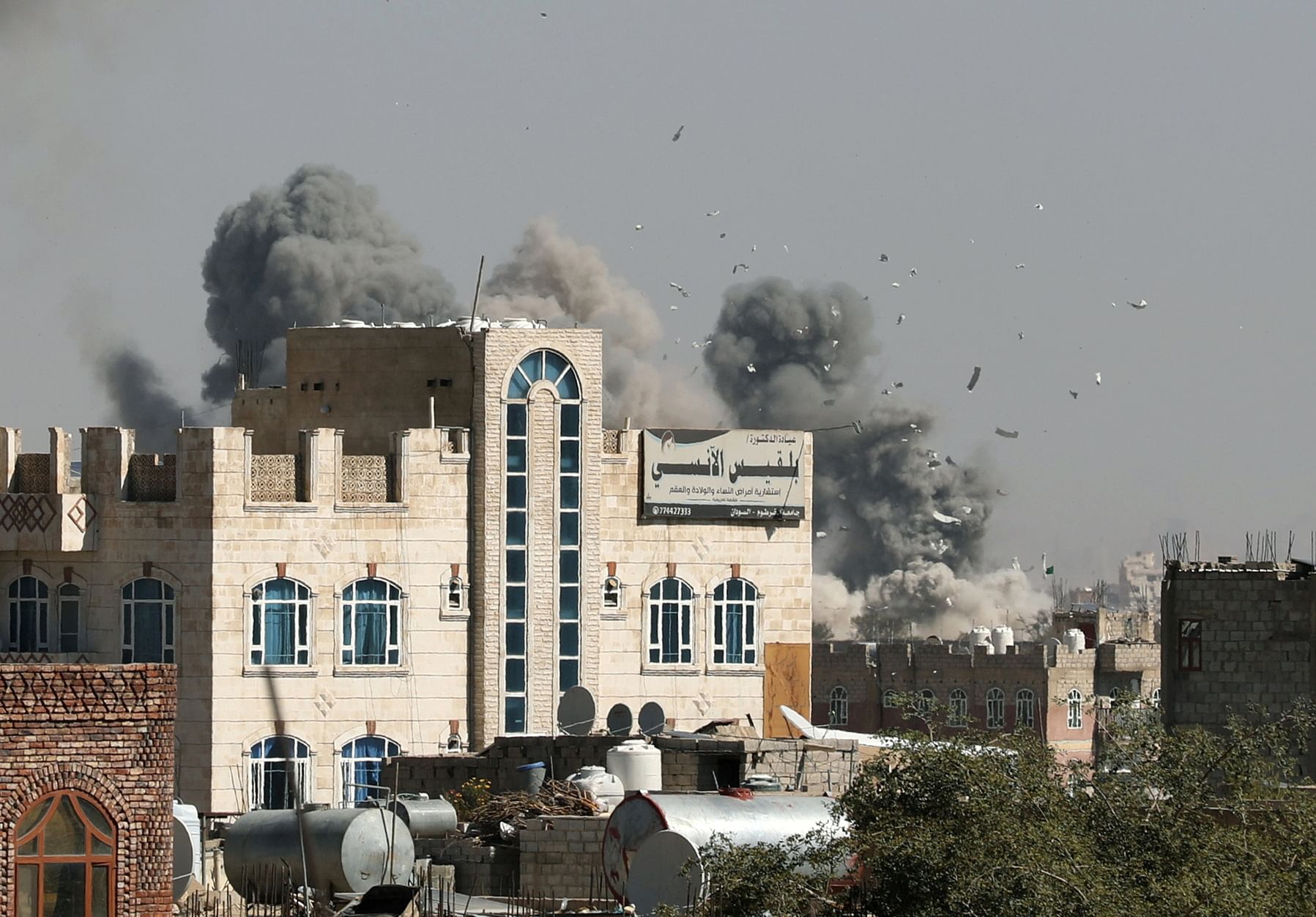Debrief
The Yemen Conflict: What it is about
Sign up now: Get ST's newsletters delivered to your inbox

Yemen has suffered the worst humanitarian crisis the world has seen in recent years.
PHOTO: AFP
Sheik Heikel Khalid Bafana, a 48-year-old Singaporean was recently detained under the Internal Security Act for taking up arms and fighting alongside a faction in the Yemen civil war.
In a statement on Wednesday, the Internal Security Department (ISD) said Mr Heikel had also acted as a broker between this faction and the foreign power, both of which were not named.
The Straits Times explains what the Yemen civil war is about.
The story
The civil war started in 2014 between Houthi rebels and government forces. But seeds of the conflict were sown in the 2011 Arab Spring, when mass demonstrations and a near-assassination of long-time authoritarian President Ali Abdullah Saleh forced him to step down and hand over to his vice-president, Mr Abed Rabbo Mansour Hadi. The political transition a year later, overseen by the United Nations, failed to bring stability to the country.
In 2014, the Houthis - an anti-government rebel movement which champions the Zaidi Shi'ite minority - launched a rebellion after forging an unlikely alliance with former president Ali Abdullah, who had wanted to regain power.
The Houthis took control of their northern strongholds in and around the province of Saada in late 2014, before they moved south and overran nearly the entire country, including the capital city of Sana'a. A power-sharing deal between the Houthis and the government brokered by the UN was ignored. Mr Hadi fled to Saudi Arabia in March 2015.
At his request, Saudi Crown Prince Mohammad bin Salman organised a coalition that involved 8 other Sunni Arab states, including the United Arab Emirates to intervene in Yemen. The coalition - along with local forces - launched a series of air strikes and attacks at sea aimed at finishing off the Houthis quickly and restoring Mr Hadi to power. Saudi Arabia fears that the Houthis would become yet another Shi'ite proxy of Iran, much like the Hizbollah militia group in Lebanon.
The Saudi-led coalition is backed by the US, Britain and France, which not only supplied weapons, but also provided logistical and intelligence support.
The Houthis were pushed back but not dislodged from territories they seized in the north, including Sana'a. With the help of Iran, they began launching regular ballistic missile and drone attacks on Saudi Arabia, some of which had hit prime targets like oil fields. In 2017, the Saudi-led coalition tightened its blockade of Yemen to stop Iran from smuggling the weapons to the rebels. But it only worsened the humanitarian crisis in Yemen. The alliance between the Houthis and Mr Saleh also collapsed in November 2017. Mr Saleh was killed in a clash one month later.
In July 2019, the UAE withdrew from the war. The Southern Transitional Council (STC), a UAE-aligned separatist group, took advantage of the withdrawal and seized the southern port city of Aden, which was then controlled by the government forces. STC had accused Mr Hadi of mismanagement and colluding with the Islamist forces. A peace deal brokered by Saudi, which briefly allowed Mr Hadi to gain back control, was swiftly ignored the following year. In April, the STC declared self-rule in southern Yemen. That same month, Saudi Arabia announced a unilateral ceasefire because of the coronavirus pandemic.
Why it matters
Yemen has suffered the worst humanitarian crisis the world has seen in recent years. The UN estimated that four in five Yemenis need humanitarian assistance. Yemen has also struggled with the biggest cholera outbreak on record since the war started. The UN warned that the death toll from the coronavirus pandemic could "exceed the combined toll of war, disease and hunger over the last five years." The nearly four million people who have been displaced could also set off a wave of refugees across the region.
As the war drags on, Yemen became a battleground for proxy powers between the Shia-controlled Iran and Sunni-ruled Saudi Arabia. In the south, the government forces are accused of forging alliances with violent extremists and other militias. Terror organisations like ISIS and Al-Qaeda have been exploiting the political instability in Yemen to build strength.
The crisis could also disrupt the world's oil shipments, much of which pass through the Gulf of Aden, where Yemen is situated.
What's next
The crisis may have started in 2011 but the animosity between the northern and southern states dates back to the civil wars of the 1960s.
Mr Hadi is unpopular in the north. The STC also enjoys very little support outside Aden. And the Houthis are generally received with hostility in the Sunni-majority south. Numerous peace deals have been forged and broken. Some pondered the possibility of a southern secession. Without a single force that could hold the country together, peace in Yemen remains an elusive idea.


